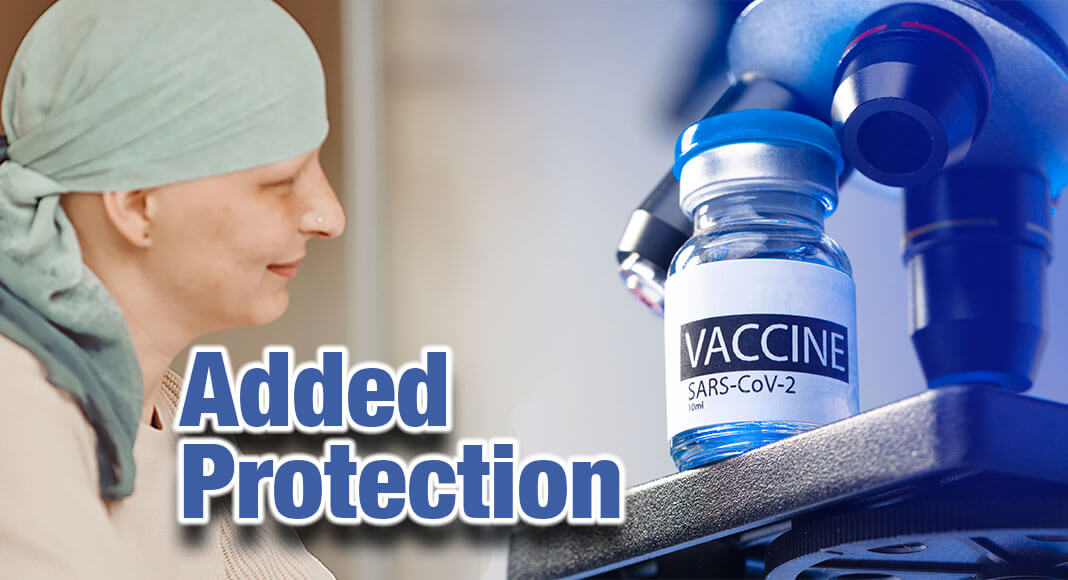
Mega Doctor News
by Medical University of Vienna (MedUni Wien)
Newswise — People with cancer are often given immunosuppressive treatments that weaken their innate immune defenses. This puts them at high risk of severe disease, should they become infected by Coronavirus. A study conducted by MedUni Vienna has now shown that many of these people can build up sufficient immunity against the SARS-CoV-2 virus after the third vaccination or “booster”. The results were recently published in the internationally renowned journal European Journal of Cancer.
If cancer patients become infected, they are not only susceptible to developing severe COVID-19 but also risk interruptions to their cancer treatment or monitoring. COVID vaccination is therefore recommended for all cancer patients, as is a third “booster” vaccination, given that immunity wanes over time.
However, hitherto only limited data has been available on the efficacy of this third vaccination in cancer patients. Researchers at MedUni Vienna, led by Matthias Preusser (Division of Oncology at the Department of Medicine I of MedUni Vienna and University Hospital Vienna) working with the Department of Laboratory Medicine and the Division of Infectious Diseases and Tropical Medicine (Department of Medicine I of MedUni Vienna), as well as the Haemato-Oncology Day Clinic at Franz Tappeiner Hospital in Merano (Italy), the Department of Artificial Intelligence and Human Interfaces and Intelligent Data Analytics Lab Salzburg at the University of Salzburg and the Department of Production Management and Logistics at the University of Klagenfurt, have now investigated the level of anti-SARS-CoV-2 spike protein antibodies present following the third vaccination dose in 439 cancer patients using blood tests.
Preliminary analysis showed a decrease in antibody levels between 3 and 6 months after the second vaccination in patients with solid tumors and those with hematological malignancies not receiving anti-B-cell therapies. “The cancer patients’ antibody levels rose again following the third booster dose,” report first authors Julia Berger and Maximilian Mair of the Division of Oncology, “although the new antibody levels were not as high as in the healthy control group, they were probably still good enough to provide protection.”
Patients with blood cancer do not develop any protection
Patients with hematologic cancers such as leukemia or lymphoma are often given CD20-depleting therapy, which inhibits the very cells responsible for developing the necessary antibodies. In such cases, even the third vaccination failed to bring about the desired immune response. “Such patients, who are unlikely to be able to build up adequate protection, are at risk and have to be especially careful when it comes to social contacts and be rigorous in observing the appropriate hygiene measures,” explains Matthias Preusser. Drugs that inhibit viral replication or the intravenous administration of engineered antibodies may be considered as a possible strategy to improve COVID-19 protection in patients who cannot mount an adequate vaccine response. “However, we still have insufficient study data on optimal COVID-19 prophylaxis in immunosuppressed patients,” says Preusser.
Minimal side-effects
The most common side-effects after the third dose were localized pain (46.9%), fatigue (15.6%), and fever/chills (10.0%), and are therefore similar to those experienced by people who do not have cancer. “Based on these study results and the fact that the side-effects are tolerable, we recommend the third booster vaccination to all cancer patients,” explains Matthias Preusser, “and in addition to antibody-producing B cells, we also observed cellular immune responses in NK cells. This in itself can make the difference between mild and severe disease.”









